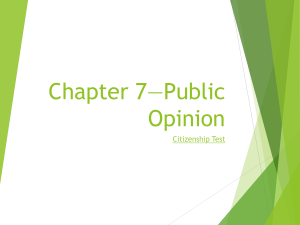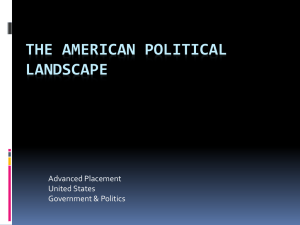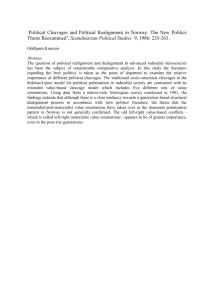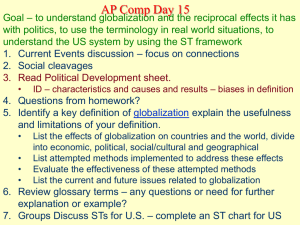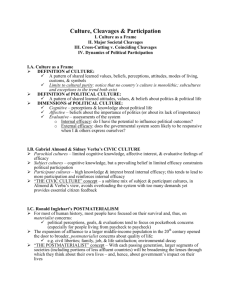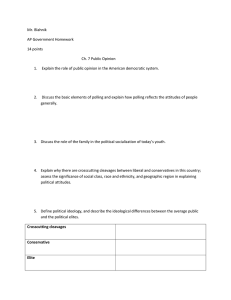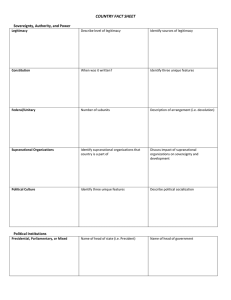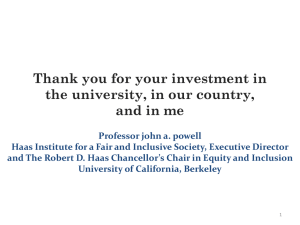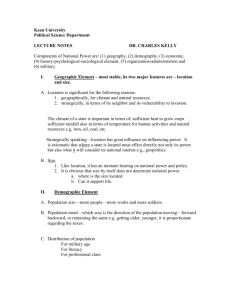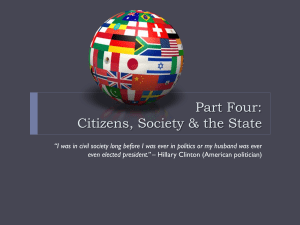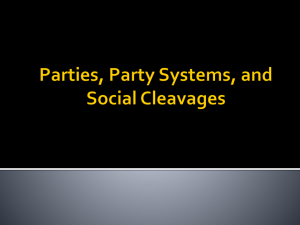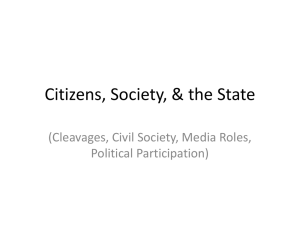TOPIC 4: CITIZENS SOCIETY AND THE STATE
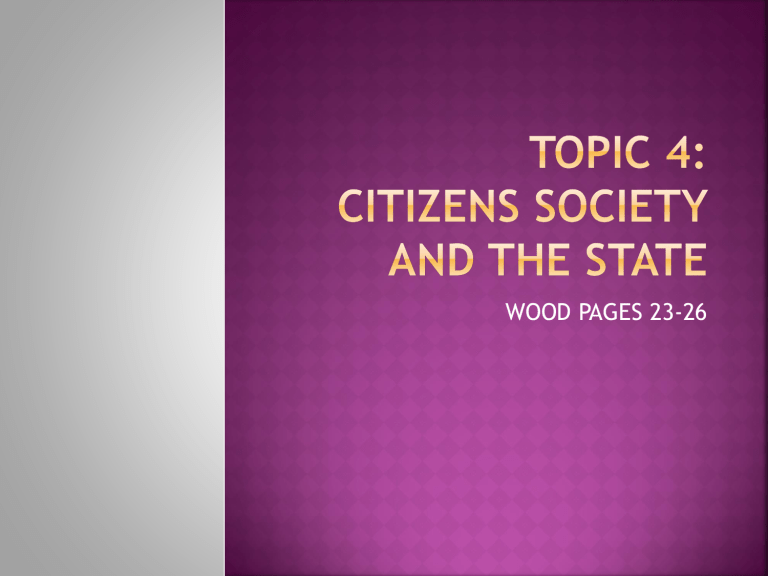
WOOD PAGES 23-26
Policymaking is impacted by religion, ethnic groups, race, language, social and economic classes.
These divisions are referred to as SOCIAL
CLEAVAGES.
The mix of BASES OF SOCIAL CLEAVAGES determine depth and separation from citizens.
What effect do cleavages have on political institutions?
Government – Citizen relationships may be compared by categorizing and noting differences and similarities among categories.
Comparisons of countries can be compared categorically.
Attitudes and beliefs of citizens (Trust, Political efficacy)
Political Socialization (Education, Families, ect.)
Types of Political Participation (Authoritarian vs.
Democratic)
Voting Behavior (Regular, Free, Fair elections)
Factors that Influence Political Beliefs and Behaviors
(Do cleavages affect political beliefs and behaviors?
1. Social Class – Determines political attitudes based on economic differences.
2. Ethnic Cleavages – Most divisive cleavages in all countries.
3. Religious Cleavages – Often intertwined with ethnicity or within religions.
(fundamentalism vs. nonfundamentalism)
4. Regional Cleavages – Competition for government money, jobs and development projects.
Coinciding Cleavages – Every dispute divides groups against each other.
Cross-Cutting Cleavages – Divide society into potential groups that may conflict on one issue or cooperate on another. Social conflict are kept to moderate levels.
Organized collective activities that aim to bring about or resist fundamental change in an existing group or society.
Try to influence policymakers to make decisions to support their goals.
Try to push others into reconsidering their positions.
Examples: Women’s Movement, Civil Rights
Movement, African National Congress
(overthrow of Apartheid).
Organizations outside the government that help people define and advance their own interests.
Stronger in liberal democracies.
Organizations of class, religion, or ethnic interests influence Civil Society.
Helps define people’s relationship to and role in politics and community affairs.
Helps to prevent “tyranny of the majority” through societal checks on power.
May include advocacy groups, social networks and the media.
Global Civil Society has emerged with human rights and environmental groups affecting government-citizen relations.
GLOBAL COSMOPOLITANISM – universal political order that draws its identity from everywhere. (Growing worldwide)
NONGOVERNMENTAL ORGANIZATIONS
(NGO’S) – National and international groups, independent of any state, that pursue policy objectives and foster public participation.
Means where people can find common interests with people who live in other parts of the world.
Examples: Doctors Without Borders, Amnesty
International.
Civil Society is not encouraged in
Authoritarian regimes but it does not disappear either. (Russian Orthodox Church under Communist Regime)
Generally weak in less developed and industrializing countries.
Current trends include more women participating in NGO’S and influence on health, gender, environmental, and poverty issues.
